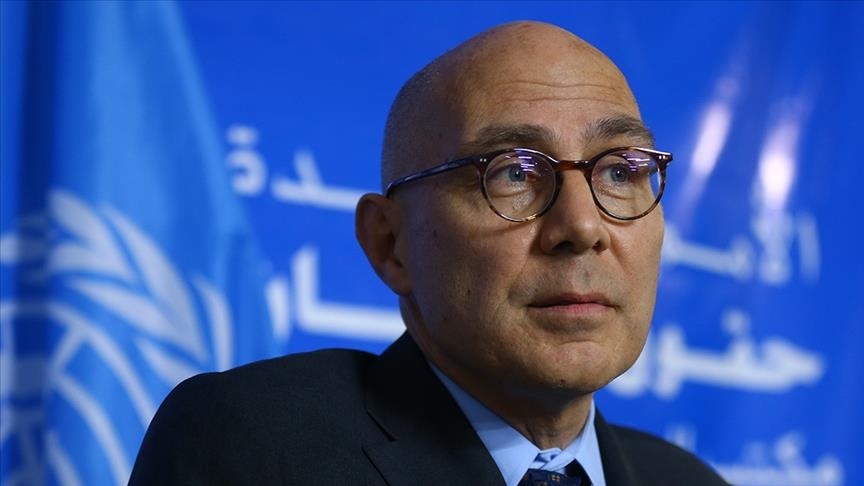GENEVA
The UN human rights chief on Tuesday expressed concern that several proposed legislative changes currently being considered in Israel’s parliament would pose severe risks to the effectiveness of the judiciary.
In a statement, Volker Turk said the changes could hamper the judiciary’s ability to defend the rule of law and pose risks to human rights and judicial independence.
“Breaking from decades of settled practice, such a law would drastically undermine the ability of the judiciary to vindicate individual rights and to uphold the rule of law as an effective institutional check on executive and legislative power,” said Turk.
“Experience in Israel, and around the world, has shown the enduring value of a judiciary that can independently hold the other branches of government to the fundamental legal standards of a society set out in its basic laws.”
He said the proposals in their current form would, through a variety of measures, limit the Israeli Supreme Court’s ability to subject legislation to judicial review.
Supermajority of judges
The changes would require either a supermajority of judges or unanimity for the top court to strike down any legislation.
The proposals “would also allow the Knesset to reinstate, by simple majority, any legislation the Supreme Court struck down, and limit the bases upon which laws could be reviewed,” read a statement by the UN Human Rights Office.
The current proposals would also change the judicial selection process by altering the composition of the judicial selection committee and changing the appointment process of Supreme Court judges.
While currently independent judges and lawyers comprise the majority of the selection committee, the proposals would move toward much greater political influence over this process.
The proposed changes would allow a simple majority of five out of nine committee members to confirm appointments of Supreme Court judges – rather than the current seven out of nine – further deepening governmental influence in the appointments process, the statement added.
“I am concerned that, if passed, these changes risk weakening human rights protections for all, but especially the most vulnerable communities and groups less able to vindicate their rights through representation in the executive and legislative branches of government,” said Turk.
Recent demonstrations by tens of thousands of people against the proposed changes, including in Tel Aviv and Jerusalem, “illustrate the extent of public disquiet with the proposed changes,” read the statement.
“Changes going to the heart of a country’s long-standing constitutional structure, and which affect well-established institutional safeguards, should only be undertaken following extensive consultation and broad political and public consensus,” Turk added.
“Given the degree of public and political concern, I call on the government of Israel to pause the proposed legislative changes and open them up for wider debate and reflection.”
On Sunday, US Ambassador to Israel Tom Nides also urged Israeli Prime Minister Benjamin Netanyahu to reverse his controversial judicial reform plans.

